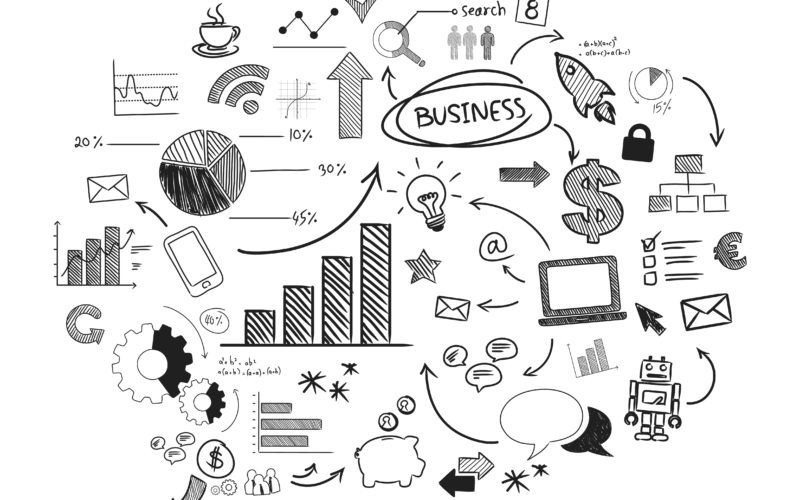A functional and well-designed website is the key to a successful digital presence and excellent visibility. White-label WordPress development can support your vision and scale your business profitably.
However, it is difficult to choose between traditional agencies and comprehensive white-label web design and WordPress development services. You must explore the intricacies of both approaches before making the choice.
This article will help explore the nuances of traditional development and white-label services to help make the right choice.
Overview of Traditional Agencies
For years, businesses have relied on traditional agencies to support their website design and development goals. These agencies are built around an expert team of designers, developers and project managers. They collaborate to work towards delivering a tailored website aligned with the client’s requirements.
The Key Features of Traditional Agency
#1 Expertise and Proficiency
Traditional agencies are run by a diverse and proficient team of experts. They specialize in different website tasks such as design, coding and SEO. These proficiencies can help build a comprehensive website solution for your business. Moreover, you can take a well-defined approach using these skills and expertise.
#2 Personalized Services
Traditional agencies are proficient in offering tailored solutions. They understand your business, devise the objectives and then develop the solutions.
Each WordPress website is aligned with your brand’s image and the user’s requirements. Moreover, the agencies have established communication protocols to continuously communicate with the stakeholders. This helps deliver unique value propositions that convert into excellent experiences.
#3 Management and Accountability
There is a sense of ownership with traditional agencies. They have a fully functional project management process. As a result, they can deliver the solutions faster and extend client satisfaction.
Moreover, they have a single point of contact for the entire project. This allows them to follow the timelines, reduce the bottlenecks and be more efficient with deliveries.
Advantages of Agency-driven WordPress Development
- Traditional agencies offer bespoke WordPress solutions that are tailored to unique customer and business needs. This allows clients to get websites aligned with their vision and goals.
- The traditional agencies foster real-time collaboration and quick decisions with direct communication via proper channels.
- Agencies can use their established project management approaches to ensure timely delivery of the project. This ensures a smooth workflow from inception to deployment.
- Traditional agencies are built on a long-term client relationship, which helps with continued support and frequent updates. It helps businesses with user engagement.
- As they have been working in this sector for a while, they have built a solid reputation. This also ensures they have a strong portfolio. Proven case studies and testimonials indicate they are solid development partners.
Disadvantages of Agency-driven WordPress Development
- An agency-driven WordPress development comes with additional costs and overheads. It can be expensive, especially for startups.
- Communication and collaboration may cause project delays in the case of large-scale agencies. This can lead to flexibility issues when you are handling WordPress development projects.
- Traditional approaches rely on rigid processes. This impacts the development process. It can also restrict agility within the organizations.
- It is not suitable for small-scale projects, as they need more resources and standardized processes.
Overview White-label WordPress Development
White-label WordPress development is when you hire third-party service providers to create websites. You can rebrand their services and present it as your own. You use their expertise, portfolio and knowledge to build solutions for your clients.
Despite not having expertise in the segment you can create excellent solutions with white-label solutions.
The Key Features of White-label Services
#1 Cost-effective Solutions
White-label services allow you to employ third-party service providers and their infrastructure to build solutions for your client. You don’t invest in your infrastructure or resources. Moreover, you choose regions with low labour costs for outsourcing. This helps in scaling to meet the newer needs.
Additionally, they can offer high-quality services as they have relevant expertise and knowledge.
#2 Speed and Scalable Services
White-label services can enhance your project outcomes and help you accelerate the timelines. As they have the requisite resources and experienced developers, they can help you take up projects and achieve the milestones.
They can also help scale the resources and infrastructure to suit your development needs. Multiplying your resources to meet your skill and project needs is easier.
#3 Diverse Skills
White-label providers have a diverse team that excels in all aspects of website development. They have the requisite expertise that help in comprehensive development and fully functional website solutions.
Advantages of White-label WordPress Development
- White-label services are cost-efficient and leverage low labour costs and increased resource availability. This can help you develop high-quality solutions for the clients
- You can accelerate the project timelines with white-label solutions. As they have experienced developers who are ready to take on new projects, your turnaround times are low. White-label WordPress development can help manage tight deadlines
- You get diversity with white-label. You will find resources proficient with design, coding and testing from a single place. This will help you accomplish the entire project with white-label solutions
- It is easier to manage the resources and scale them up/down to meet project needs. It helps manage diverse workloads without hiring an in-house project team
- White-label providers are specialized in specific technologies or platforms. This helps them offer niche skills required to complete the projects.
Disadvantages of White-label WordPress Development
- White-label WordPress development restricts customizations, which is the strength of a traditional agency. You can rebrand a few elements. However, you may not be able to customize specific functionality or design requirements with white-label
- If the development team doesn’t support specific communication requirements, you may not succeed with collaboration. As there is limited direct communication, it can cause delays
- Not all white-label service providers offer the same quality. You may experience quality compromises, which can impact usability and experience.
- You are dependent on external people and teams to complete your project. This can also add to the delays.
White-label vs Traditional Agencies: Key Considerations for Outsourcing WordPress Development
It is crucial to decide the approach that best fits your requirements. Here are all the factors to consider before choosing the approach. You must evaluate these parameters for both development approaches.
#1 Project Complexity and Scope Definition
- Traditional Agencies: It is the best fit for large-scale projects that need customized solutions with unique features. This is because they have defined teams with expertise in coding, SEO and design. It can be a cost-efficient solution for startups or small businesses.
- White-label Solutions: It is a cost-effective approach for small projects that comprise standard features. They offer scalability and accelerated time-to-market advantages. However, they may restrict customizations. White-label services struggle with complex projects.
You must assess the complexity involved in the project. If you want to build a complex and highly customized solution, go with traditional agencies. White-label is suited for cost-efficient and simple projects.
#2 Budget Considerations
- Traditional Agencies: You will get customized and fully functional solutions at a higher cost. It is a good option if you are a large business with a budget backing. It is not at all suited for small budgets or small-scale projects.
- White-label Services: It is well within the budget of a small business or startup. You get a competitive pricing with these services. It may not extend the personalization and bespoke features you need.
You must assess your budget and identify the solution that best fits your needs. At the same time, you must also prioritize customizations to finalize the budget.
#3 Client Communication
- Traditional Agencies: It fosters direct client communication that enhances the development process. Your clients can easily connect with the stakeholders and offer real-time feedback. In case you partner with a large agency, you might face communication bottlenecks causing delays.
- White-label Services: Your white-label services can communicate via streamlined channels. This can help gain input from the client. It will help visualize the final products. However, the white-label services may not be able to communicate with the team directly. This can restrict the feedback.
Define the communication and client involvement you seek for the project. This would help you choose the approach that fits your development and collaboration needs.
#4 Long-term or One-time
- Traditional Agencies: You can build a long-term relationship with the agency. This helps with continued support and regular updates. It can help you evolve your solution over time. If you don’t have a long-term requirement, you can avoid this approach.
- White-label Services: It is the best fit for one-time projects. You can partner as and when you have requirements. This is the best fit for projects where you need an in-house team extension or help with specific solutions.
Consider the type of partnership you need before committing to a particular development approach. If you need ongoing support and maintenance, you should go with a traditional agency.
Conclusion
The ultimate choice between a white-label WordPress development solution and a traditional agency depends on business needs and constraints. The approaches have their merits and disadvantages. You must also consider the project’s scope, complexity and budget.
If you want a more hands-on and personalized solution for the business, choose a traditional agency. However, if you are looking for cost-efficient and scalable solutions, choose white-label services.
You must weigh the pros and cons of each option before making the decision. Make sure to align your solutions with the end goals.











